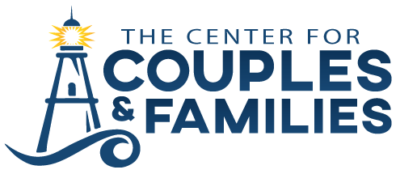LEARN SOMETHING NEW
Therapy Blog for Orem, Spanish Fork & South Jordan
What Is The Difference Between Sadness and Depression?
 What is the difference between sadness and depression? This is a question clients often ask me as a therapist in Utah County. Most clients I work with have a hard time admitting that they have depression and want to call it just sadness (Related Article: Depression Counseling). There seems to be a negative stigma with being depressed versus being sad (Related Article: Stigmas: Counseling For Mental Health Problems In Utah).
What is the difference between sadness and depression? This is a question clients often ask me as a therapist in Utah County. Most clients I work with have a hard time admitting that they have depression and want to call it just sadness (Related Article: Depression Counseling). There seems to be a negative stigma with being depressed versus being sad (Related Article: Stigmas: Counseling For Mental Health Problems In Utah).
Counselors Get Criteria To Diagnose You From The DSM-V
The book counselors use to diagnose you is called the Diagnostic and Statistical Manual For Mental Health Disorders (DSM-V). It’s the go to diagnosing guide for all therapists. In it, each diagnosis is outlined with certain criteria that must be met in order for a diagnosis to be given. If a client meets the criteria, a counselor will diagnose them with that mental health disorder.
In the DSM-V, sadness is not a diagnosis, but depression is. Let me explain how it works. There are several types of depression that are mentioned and specified in that manual. Some are more short term (i.e., Major Depressive Disorder, Single Episode, Moderate). Others can be more long term (i.e., Persistent Depressive Disorder), for example. There is a code with it as well – the former diagnosis here is coded as F32.1. Also, it is marked as a ‘single episode’ meaning that the depressive symptoms lasted for a 2-week period. The severity is also mentioned for the former diagnosis here as ‘Moderate’. It could also be ‘Mild’ or ‘Severe’ based on certain criteria.
Major depressive disorder comes with many different criteria. I’ll list a few of them here. 1) Being depressed for most of the day, nearly everyday during a 2-week period. 2) Lower interest in all or almost all activities during the day. 3) Significant weight loss. 4) Insomnia or hypersomnia almost every day. 5) Psychomotor agitation. 6) Fatigue or energy loss almost every day. 7) Feeling worthless. 8) Hard time thinking or concentrating or being indecisive. 9) Frequent thoughts of death.
It’s important to note that one of the main criteria of this particular disorder is that the symptoms cause significant distress in your life – socially, occupationally or otherwise. Hopefully this gives you an idea of how depression can be diagnosed.
There Are Different Kinds Of Depression
Keep in mind that there are many different types of depression. And that depression can be associated with other issues such as hallucinations, manic episodes, life adjustments and more. So, it’s not easy to just say that you have depression. There are many different types, kinds and qualifiers in the DSM-V that you would need to specify. And, it might be that it’s just sadness that you are feeling. Let’s talk about that.
How Is Sadness Different Than Depression?
Sadness is typically seen as situational, whereas depression is seen as clinical and perhaps longer lasting. A situational sadness, for example, comes to you when your dog dies. You feel sad and miss him. Eventually that sadness might leave, however. It comes and goes with the situation you are in. However, this sadness can turn into depression that is diagnosable if it continues on, is intense and interferes with you living your life (among other criteria).
Everybody feels sadness from time to time. Feeling sad is normal and to be expected. Not everyone feels depression. Not that it’s wrong to feel depressed, it’s just one step further than sadness and not everyone experiences it.
What Do I Do If I Think I’m Depressed?
Get help. Talk with a friend or loved one. Read self help books such as Feeling Good by David Burns. If that doesn’t help, then get help from a trained therapist. You aren’t broken, you are human.
Schedule therapy for depression in South Jordan, Orem, American Fork, or Spanish Fork.
Written by Triston Morgan, PhD Utah Marriage and Family Therapist
